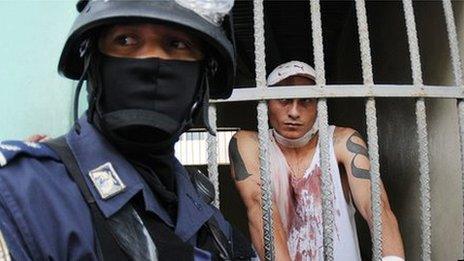Honduras transfers high risk prisoners to new jails
- Published
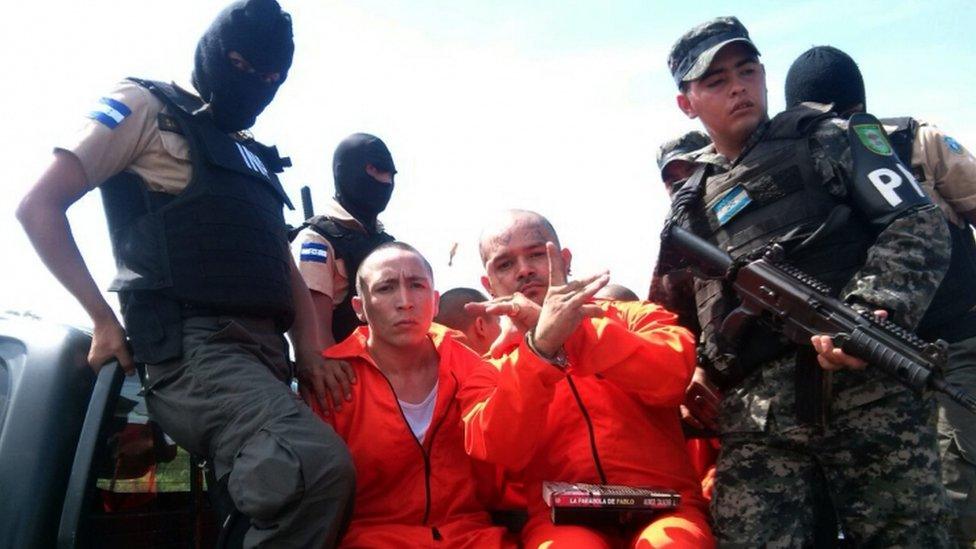
The prisoners are being moved to reduce their ability to communicate with their gang members
Honduras police have begun transferring groups of dangerous convicts to a new maximum security prison as part of a government security plan.
Thirty-seven prisoners were taken by helicopter to the new jail in the western region of Santa Barbara.
The Honduran government is seeking to regain control of the country's prisons - many of which are dominated by violent criminal gangs.
Two other high security jails are being built.
Honduran President Juan Orlando Hernandez said the transfer was intended to prevent gang leaders from being in contact with their families and gang members, and from ordering crimes and extortion from their prison cells.
High risk prisoners will be kept in isolation cells with no right to visits, phone calls and only one hour a day outside.
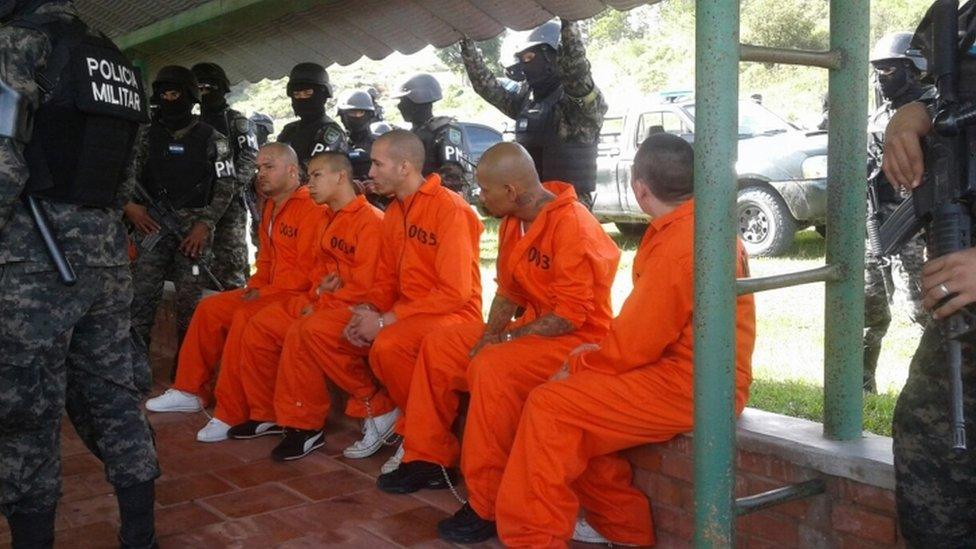
The most dangerous gang leaders have been accused of ordering kidnappings, murders and extortion from their prisons
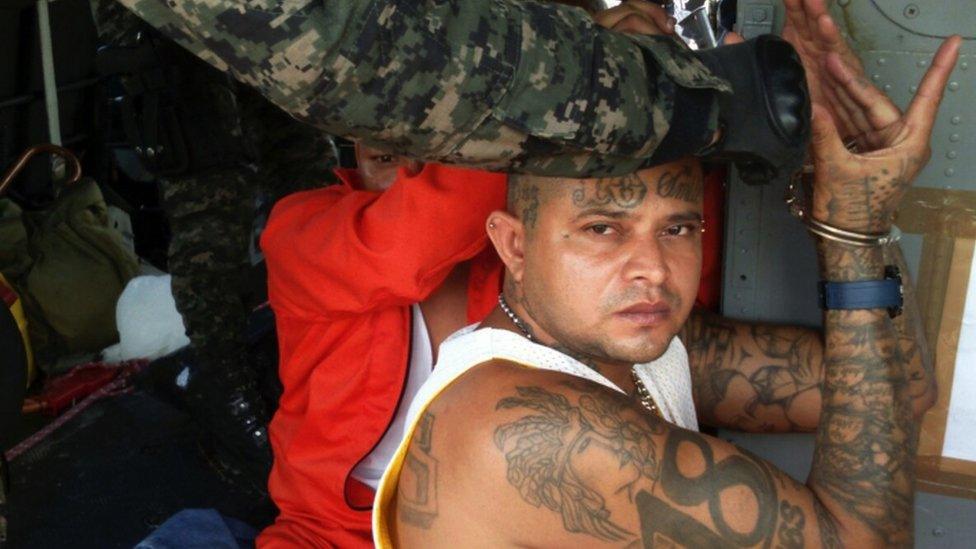
Many of the inmates who were moved bore the trademark tattoos of the notorious Barrio 18 gang
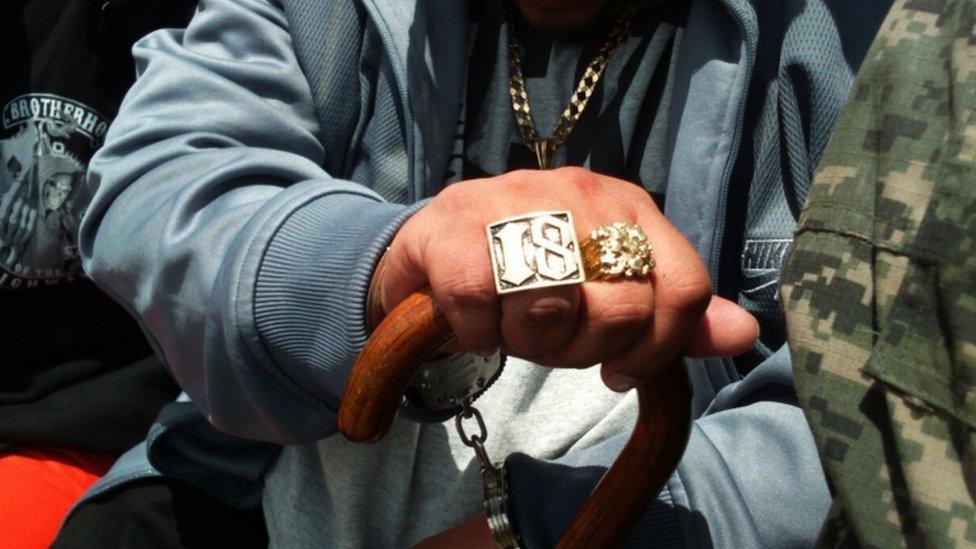
They also sported jewellery showing the Barrio 18 insignia
Conditions will be in stark contrast to Honduras's overcrowded and unsanitary prison system.
Mr Hernandez said: "A new era has begun where abuses by the most dangerous criminals will end because they will be confined in maximum security cells."
He also said there would be heavy penalties for members of the security forces who were drawn into organised crime.
Under his security programme, 274 gang leaders have been captured and 12 US drug traffickers extradited, he said.
Honduras has the highest murder rate in the world, mostly due to a war between two violent gangs, Barrio 18 and Mara Salvatrucha. They are in permanent dispute in the neighbourhoods of Honduras's larger cities, fighting for control of extortion rackets and drug trafficking.
- Published28 May 2013
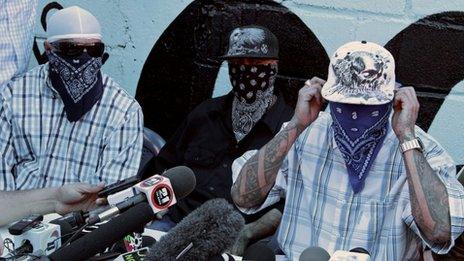
- Published19 May 2013
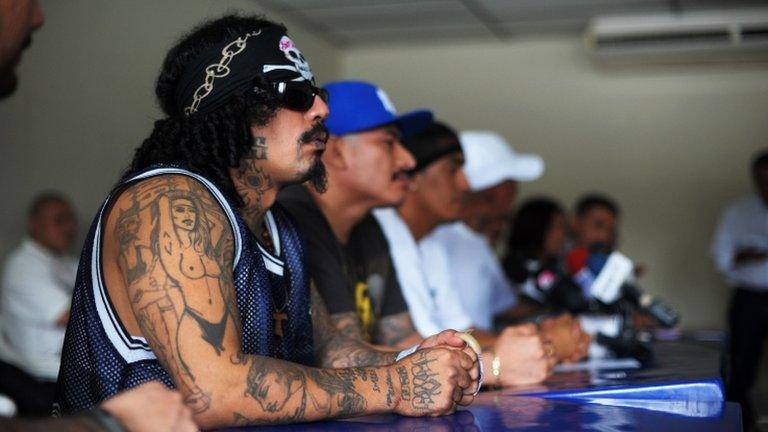
- Published5 May 2014
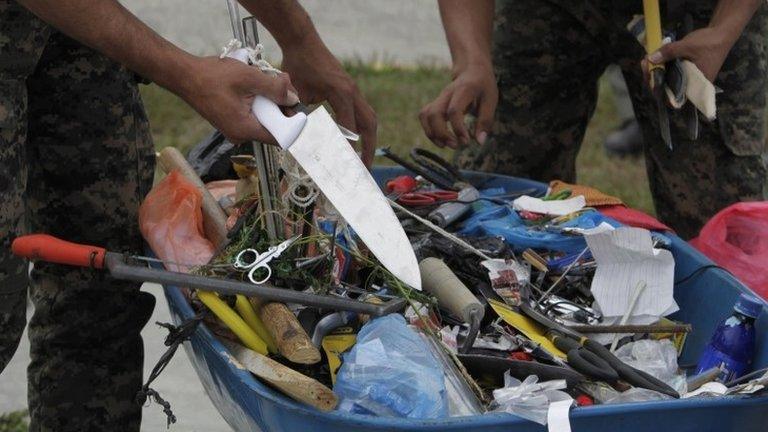
- Published4 August 2013
